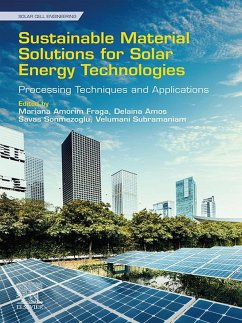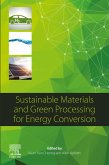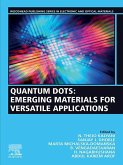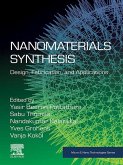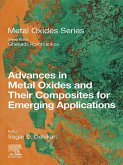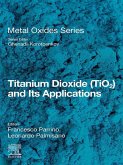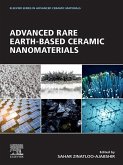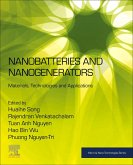Sustainable Material Solutions for Solar Energy Technologies: Processing Techniques and Applications provides an overview of challenges that must be addressed to efficiently utilize solar energy. The book explores novel materials and device architectures that have been developed to optimize energy conversion efficiencies and minimize environmental impacts. Advances in technologies for harnessing solar energy are extensively discussed, with topics including materials processing, device fabrication, sustainability of materials and manufacturing, and current state-of-the-art. Leading international experts discuss the applications, challenges, and future prospects of research in this increasingly vital field, providing a valuable resource for students and researchers working in this field. - Explores the fundamentals of sustainable materials for solar energy applications, with in-depth discussions of the most promising material solutions for solar energy technologies: photocatalysis, photovoltaic, hydrogen production, harvesting and storage - Discusses the environmental challenges to be overcome and importance of efficient materials utilization for clean energy - Looks at design materials processing and optimization of device fabrication via metrics such as power-to-weight ratio, effectiveness at EOL compared to BOL, and life-cycle analysis
Dieser Download kann aus rechtlichen Gründen nur mit Rechnungsadresse in A, B, BG, CY, CZ, D, DK, EW, E, FIN, F, GR, HR, H, IRL, I, LT, L, LR, M, NL, PL, P, R, S, SLO, SK ausgeliefert werden.

